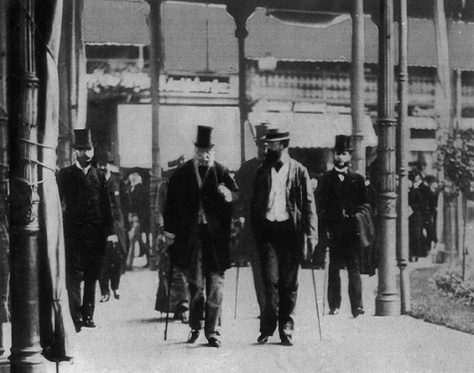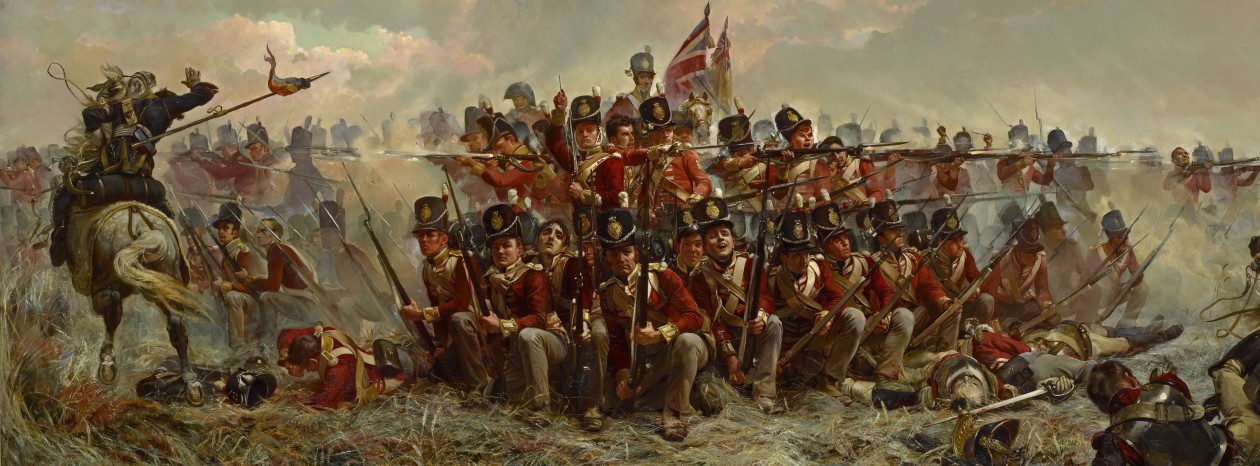I was reading about the Franco-Prussian War (1870-1871) and wanted to find out more about the reasons why the war started. I then came across one of the events that helped to spark it off: the Ems dispatch. This is a very interesting moment in history. First because it looks like it is just a footnote in the events leading to the Franco-Prussian War, but it was enough to drive France to war. Secondly, because Otto von Bismarck had a plan and it worked exactly as he thought it would. And thirdly because it shows the sometimes disastrous influence of media, faulty translations and diplomacy on highly inflammable situations.
After the Glorious Revolution (1868) in Spain, the Spanish throne was vacant. One of the candidates was the Prussian Prince Leopold of Hohenzollern-Sigmaringen. The French were afraid that, if Leopold would ascend the throne, they would become sandwiched between Hohenzollern powers, with the North German Confederation, led by Prussia, on one side and Spain on the other.
In an attempt to defuse this threat, the French diplomat Count Vincent Benedetti addressed the Prussian King Wilhelm I when he was walking on the promenade while visiting Bad Ems, a spa resort on the river Lahn.
The Count’s assignment was to ask the King never to allow a Prussian prince to gain the throne of Spain again. The King said he was not to bound himself to such an indefinite agreement and refused, after which the Count left. The whole meeting was informal and ended politely.

However, an account of the meeting was produced in which the King described the Count as being importunate. And Bismarck, who was looking for something to lure France into a war – he wanted a secured border in the west and therefore looked for a way to gain Alsac and Lorraine from France, and also hoped to include the southern German states in the confederation by the means of a war with France – saw the account as an opportunity to provoke the French.
The King’s secretary, Heinrich Abeken, had send the text below to Bismarck:
“His Majesty the King has written to me:
Count Benedetti intercepted me on the promenade and ended by demanding of me, in a very importunate manner, that I should authorize him to telegraph at once that I bound myself in perpetuity never again to give my consent if the Hohenzollerns renewed their candidature.
I rejected this demand somewhat sternly, as it is neither right nor possible to undertake engagements of this kind [for ever and ever]. Naturally, I told him that I had not yet received any news and, since he had been better informed via Paris and Madrid than I was, he must surely see that my government was not concerned in the matter.
[The King, on the advice of one of his ministers], decided, in view of the above-mentioned demands, not to receive Count Benedetti any more, but to have him informed, by an adjutant, that His Majesty had now received [from Leopold] confirmation of the news which Benedetti had already had from Paris and had nothing further to say to the ambassador.
His Majesty suggests to Your Excellency, that Benedetti’s new demand and its rejection might well be communicated both to our ambassadors and to the Press.”
Bismarck personally edited the version he received from Abeken and made his version public to the press and embassies. Bismarck’s idea was to let his version make it look like the King had insulted the French diplomat, in order to create anger with the French public and provoke a demand for war.
Bismarck’s version published version was as follows:
“After the news of the renunciation of the Prince von Hohenzollern had been communicated to the Imperial French government by the Royal Spanish government, the French Ambassador in Ems made a further demand on His Majesty the King that he should authorize him to telegraph to Paris that His Majesty the King undertook for all time never again to give his assent should the Hohenzollerns once more take up their candidature.
His Majesty the King thereupon refused to receive the Ambassador again and had the latter informed by the Adjutant of the day that His Majesty had no further communication to make to the Ambassador.”
The style and tone of both accounts are obviously different and Bismarck was certain that his version “would have the effect of a red rag on the Gallic bull”. And he was right.
The French press unwittingly helped Bismarck with his plan by a bad translation. They translated the German word “Adjutant”, which means aide-de-camp, an officers position, to “adjudant” which is a non-commisioned officer, making the event look even more insulting for the French diplomat.
The French public was infuriated by such an insult and demanded war and the French government mobilized the armed forces and went to war with Prussia.
The Ems dispatch alone of course was not the only factor which led to the Franco-Prussian War. After the Prusso-Austrian War of 1866, the balance of power in Europe tipped towards Prussia and France demanded compensation in the form of territories in Belgium and at the left bank of the Rhine to secure its borders, but this was refused by Bismarck.
And as said, Bismarck also had his reasons to aim for war, the main reason being to complete the unification of Germany, in which he succeeded because the southern German states sided with the North German Confedration instead of joining France, for which Napoleon III had hoped.
